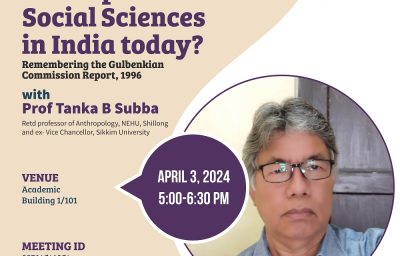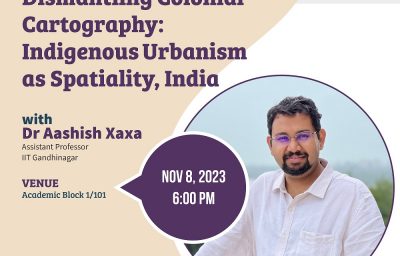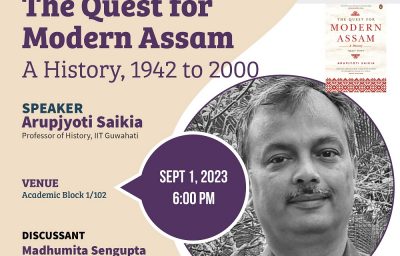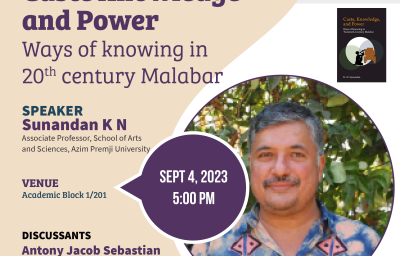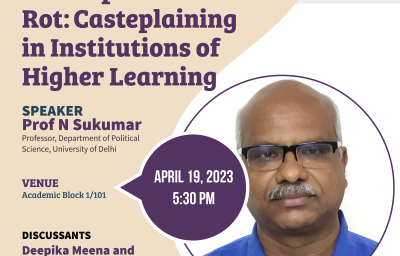Speaker Bio:
Dr. Mohd. Mubashshir Ahsan, is a Lecturer at Humanities and Social Sciences, Indian Institute of Technology Gandhinagar, Gujarat. He is trained in Islamic Studies and Madrasa education system. He is an alumni of JNU, New Delhi, from where he completed his PhD as well as his undergraduate and post-graduation. His Ph.D. thesis titled, “Contribution of Shah Waliullah & His Sons to Qur’anic Studies” explores how Shah Waliullah and his sons able to create fresh ideas to solve community problems and put the Quran and hadith as roots. He has edited and written a commentary on the book ‘Tarjumanul-Qur’an’, in Hindi as well as Urdu, written by one of the most notable figures of the Independence movement, Maulana Abul Kalam Azad, In Tarjumanul-Qur’an Maulana Azad sought to provide an easily intelligible Urdu translation of the Holy Qur’an, Dr. Ahsan has also edited and written a commentary on the book titled ‘Azad ki Kahani Khud Azad ki Zubani’ authored by Abdur-Razzaq Malihabadi. He has also designed and transliterated Urdu poetry-prose course as well as advance Urdu poetry course materials in Hindi for non-Urdu background students.
Abstract:
koī to suud chukā.e koī to zimma le
us inqalāb kā jo aaj tak udhār sā hai
Kaifi Azmi
Revolution is the ultimate stage after dissatisfaction, protest, and rebellion. It concerns all human societies. Poets in almost all languages have pondered and philosophized the idea and experience of revolution. Urdu poets have also written copiously on this. Indian sub-continent has a very glorious history of revolutionary poets from Hindi, Urdu and other regional languages which has made a great impact on Freedom Struggle Movement. Progressive and revolutionary poets continue to challenge the establishment and raise the social concerns of the people through their poems.
“In the dark times Will there also be singing? Yes, there will also be singing. About the dark times.”
Bertolt Brecht
Famous lines of Brecht have relevance to the contemporary world.
In unspeakably dark moments, where do we turn? To facts? Beliefs? Or to somewhere else? Facts organize the world in which we make an effort to control. To do so, we cling to our beliefs out of fear which often lead to anxiety and chaos. But poetry, specifically that of the revolutionary poet, does both; it soothe our disquiet minds and awaken us to our complacency. Within the revolutionary poet’s words lies the potential not only to speak of our discontents, but also to bring us together, move us to action, and help us imagine how to create new futures.
Venue:
Date: Wednesday, January 29
Place: AB 6/202
Time: 2:30 – 4:00 PM


